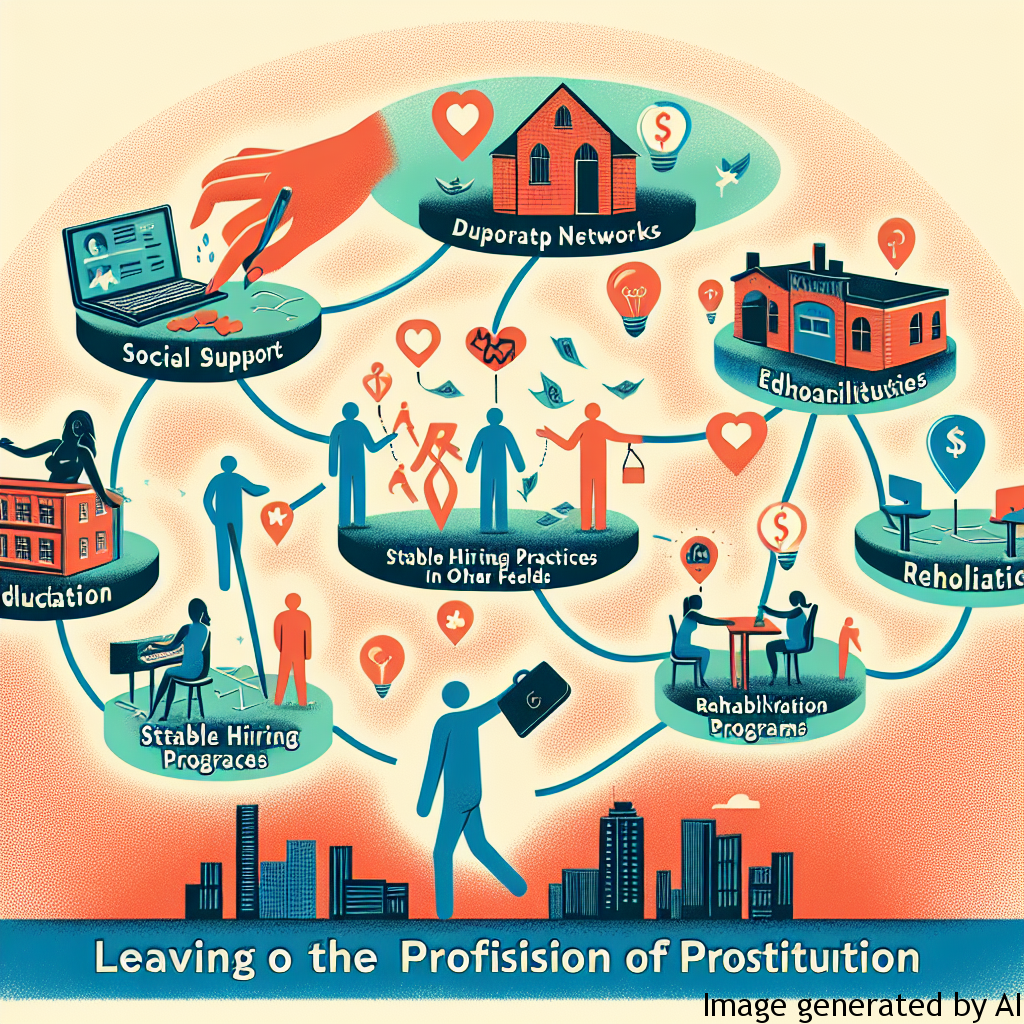Introduction
Prostitution, being the world’s oldest profession, is a controversial issue around the globe. For many individuals, it is their only means of survival; however, it’s also an area that exposes them to possibilities of violence, sexual exploitation, and trauma. For this reason, many look for and require suitable exit strategies to leave this profession behind. This article will focus primarily on men engaged in this line of work, understanding the impact of societal gender expectations on their mental health, and discussing potential strategies to exit the profession.
Description of Gender Expectations and Their Impact on Men’s Mental Health
Our society is guided by gender norms and stereotypes that result in distinct expectations for men and women. The concept of masculinity thrives on traits associated with strength, dominance, and emotional stoicism. However, these stereotypes and constraints can have undesirable effects on the mental health of men working in the prostitution industry.
The Stigma
Men engaged in sex work frequently bear the stigma of emasculation, leading to internalised shame and guilt. This stigma often causes psychological stress and prevents them from seeking help or disclosing their profession to others, isolating them further.
The Emotional Impact
The cultural expectation for men to be devoid of emotion can cause those in prostitution to suppress their feelings, leading to increased anxiety, stress, and even leading to serious mental health disorders like depression.
Examples of How Gender Roles Can Affect Men’s Lives
Men involved in prostitution often experience societal rejections, which shape their psyche and livelihood. For instance, they may face difficulties in finding employment due to the stigma attached to their past work. Similarly, their relationships may suffer as they grapple with shame and guilt, often expected to “bear the burden” silently. The societal pressure to conform to traditional male roles can also lead to a reluctance to seek help – prolonging their pain and potentially trapping them further in the cycle of prostitution.
Tips for Improving Mental Health Considering Gender Roles
Overcoming the detrimental effects of societal gender norms and exiting a prostitution career requires a multi-pronged approach:
Seeking Professional Help
Men looking to exit prostitution should be encouraged to seek professional help. Therapists and counsellors trained in dealing with trauma and mental health issues related to prostitution can provide a safe space to express emotions openly and without judgment.
Skills Education and Training
Providing access to skills training and education, men coming from a background of prostitution can gear up for new employment opportunities. Empowering them with the ability to earn a livelihood in a safer environment goes a long way towards their rehabilitation.
Peer Support
Support groups of individuals who have had similar experiences can provide validation and reduce feelings of isolation. These groups can offer practical advice, emotional support, and have a strong impact on their self-esteem and self-worth.
Conculusion
Prostitution often leaves deep and lasting impacts on a person’s psychology and overall well-being. For women and men alike, it becomes crucial to identify and implement exit strategies that take into account societal norms and gender roles. Professional help, skill-training, and peer support are significant pillars of these exit strategies and offer a path towards a healthier, safer life.

